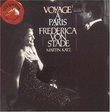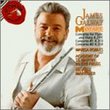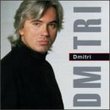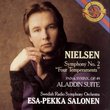| All Artists: Ludwig van Beethoven, Johannes Brahms, Charles Munch, Jascha Heifetz, Fritz Reiner Title: Heifetz: Beethoven & Brahms Concertos (Beethoven: Concerto for violin in D; Brahms: Violin Concerto in D Op77) Members Wishing: 0 Total Copies: 0 Label: RCA Release Date: 5/9/1995 Genre: Classical Styles: Forms & Genres, Concertos, Historical Periods, Classical (c.1770-1830), Modern, 20th, & 21st Century, Instruments, Strings Number of Discs: 1 SwapaCD Credits: 1 Other Editions: Concerto in D UPC: 090266174225 |
Search - Ludwig van Beethoven, Johannes Brahms, Charles Munch :: Heifetz: Beethoven & Brahms Concertos (Beethoven: Concerto for violin in D; Brahms: Violin Concerto in D Op77)
CD DetailsSimilarly Requested CDs
|
CD ReviewsGet the Living Stereo versions instead Michael B. Richman | Portland, Maine USA | 07/11/2000 (3 out of 5 stars) "There is no need to get this CD when one can now buy the Living Stereo reissues. This same version of the Brahms Violin Concerto is coupled with a glorious recording of the Tchaikovsky Violin Concerto, while the Bethoven Violin Concerto is paired on a separate CD with the Mendelssohn Violin Concerto. The other nice thing about the Living Stereo CDs is the Reiner/Chicago recordings (Brahms and Tchaikovsky) are kept together, as are the Munch/Boston recordings. This makes for two altogether more consistent releases. Don't take me wrong, the music on this CD is timeless, but there is no reason to pay $15 for two concertos, when you can get four for just over $20." Thank you Heifetz! Michael B. Richman | 12/04/1999 (5 out of 5 stars) "Yes, I know Heifetz departed long ago, but I still think many thanks are due to him. Why? Because he is the only one who interprets these concerti with sensible tempi. As the liner notes say, it's all too common for violinists nowadays to play them with broad tempi which are completely at odds with the strong tonal architecture of these works. Sometimes I wonder whether violinists interpret the Brahms in this way because they're not technically capable of playing it with the forward motion it needs. Let me be specific -- in the first movements of both the Brahms and Beethoven, the traditional broad tempi usually leads to a sense of musical rambling. Not so here -- Heifetz and his supporting conductors/orchestras make the first movements grand yet tightly argued. The slow movements are free of sentimentality but strong on sentiment (yes, there IS a difference!), while the finales have plenty of vigour and life. This is especially needed for the Brahms finale, which is traditionally interpreted as some sort of heavy footed dance with a massive slowing down in the third bar of the theme (the score indicates nothing of the sort). Heifetz, I suspect, knew what gypsy fiddling is all about, and gives us a finale that is really fiery and passionate yet absolutely refined in intonation and touching when the middle "C" section/theme backtracks to remind us of the main theme of the slow movement. I'm not a great fan of recordings from the early stereo era and all those people who claim that "classic" interpretations from that era have not been surpassed. But, IMHO, this disc thoroughly deserves its "classic" status. No on interprets the Beethoven and Brahms concerti like Heifetz with Reiner and Munch. Enuf said." The Best pdpTrojan | New York, NY United States | 12/25/1999 (5 out of 5 stars) "These two recordings are legendary. I don't understand how some violinists can take the first movements of these concerti so slowly. Both the Beethoven and Brahms concerti lose all coherency at a slow tempo. Some people nowadays think that "Slower is More Beautiful". This might be the case with some music, but not the Beethoven and Brahms. These are the interpretations to live by. Every note is in tune, every phrase thought out... the excitement that can be extracted from the first movement of the Brahms is amazing. I always find myself standing up by the end of the first movement. Everyone should own these."
|

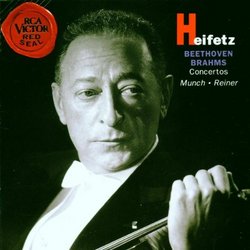
 Track Listings (6) - Disc #1
Track Listings (6) - Disc #1